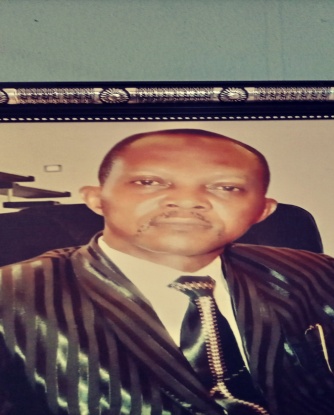Department of History and International Studies Brief History

Dr. Emmanuel C.I Godcan-Eza
(HOD)
Department Brief History
The Department of History and International Studies, Evangel University Akaeze was established in 2016/2017 Academic Session, following the approval of the History and International Studies programme by the National Universities Commission (NUC) team.
The Department is domiciled in the College of Arts and Social Sciences of the University. The Department began the 2016/2017 academic session with the following academic staff: Dr Clement O. Mgbada (Associate Professor), Dr Sylvanus I. Okoro (Associate Professor), Dr Evaristus E. Emeghara (Senior Lecturer), Dr. David L. Imbua (Senior Lecturer), Mr Ononiwu A. Oparah and Mr. Boniface I. Orji (Assistant Lecturers). Subsequently, the Department has experienced substantial growth both in its academic staffing and students’ enrolment. Currently, the Department has nine (9) dedicated academic staff as follows: Prof Onwuka N. Njoku, (HOD), Dr S.I Okoro (Associate Professor), Dr I.O Ewa, Dr C.M. Amaechi, Dr E.E Emeghara, Dr C.O Okoko, Dr Godcan-Eze, Dr A.O Nwalu and Mr O.A. Oparah.
On students’ enrolment, the Department has consistently received students since inception, that spread across the three sessions (2016/17, 2017/18, and 2018/19). The Department offers a four-year regular Bachelor of Arts degree in History and International Studies. The degree is obtainable through course work and research embodied in a well documented project. The award is made in respect to both learning and character.
Philosophy of the Programme
The subject matter of History, distinguishing it from other Humanities and Social Sciences, consists of the attempts of human beings in the past to organize life materially and conceptually, individually and collectively, while the object of studying these things is to widen students’ experience and develop qualities of perception and judgement. History provides a distinctive education by providing a sense of the past, an awareness of the development of differing values, systems and societies and the inclusion of critical yet to tolerate personal attitudes. History’s reciprocal relationship with other disciplines can have an important influence on the experience of the student of the subject.
The History and International Studies programme is designed to enhance the student’s grasp of the contents and methodology of Nigerian and African history in the context of world history. This is to develop in the students the competency and benefits traditionally associated with historical studies such as critical assessment of facts, analytical faculties and balanced judgment.
Furthermore, the programme reflects the belief that the proper understanding of history, apart from being indispensable to the education of any civilized man, should provide some perspective to related subjects in the humanities, social sciences and the natural sciences. The overall university programme caters for this multi-disciplinary approach to the study of the development of human society.
Although the programme emphasizes Nigerian and African history in that order, the realities of our shrinking world necessitate the comparable approach that incorporates other areas of Europe, the Middle East, Asia, North America, Latin America and the Caribbean. These regional studies and the injection of courses in International Relations and Diplomacy are meant to emphasize the international dimensions of historical studies. This would enable the students (the opportunity) to appreciate the main economic, political and social forces that have shaped world historical events and have continued to shape the present realities of World order.
Aim and Objective
The programme aim at achieving the following objectives:
i. To give the students a thorough understanding of the content and methodology of Nigerian and African history, as a springboard for studying the histories of other parts of the world;
ii. To ensure a thorough understanding by the students of how international developments in a globalizing world affect their country and continent;
iii. To enable the students develop their abilities and reap benefits traditionally associated with historical studies, such as critical evaluation of events with balanced judgment , particularly, in administrative and managerial responsibilities;
iv. To educate the students on historical movements of global importance to enable them acquire better knowledge of the world and thus contribute in promoting world peace; and
v. To make the students understand the historical forces and developments which have shaped, and are still shaping, the lives of Nigerians, Africa and the global community at large. This understanding will enable them to consciously relate to these forces and developments in such a way that national unity, independence and prosperity of Nigeria and Africa can be achieved.
SCOPE
The programme provides in-depth knowledge in the following core areas of historical studies:
Nigerian History
African History
Global History
Economic History
Political History
Social History
Diplomacy/International Affairs
Developmental Studies
Urbanisation and Conflict History, etc
To give a broad based knowledge to students of the Department, the Programme offers courses from other Departments in the College as electives.